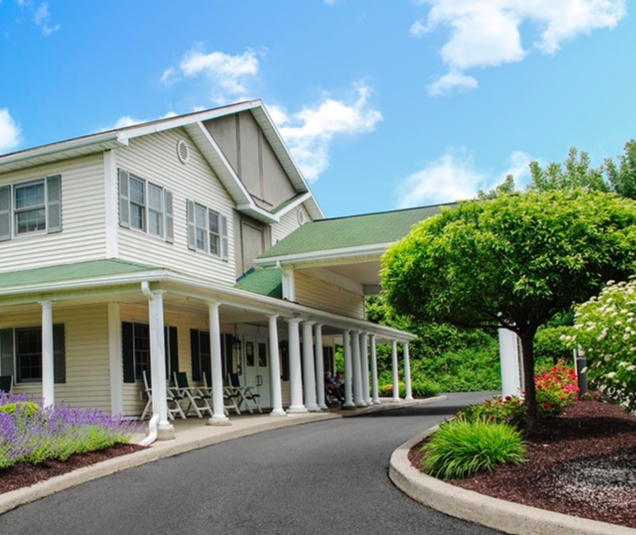Choosing the proper care option for yourself or a loved one is one of life’s most important decisions. Families often find themselves navigating unfamiliar territory, filled with questions about what assisted living truly offers and whether it’s the right fit. Does assisted living provide around-the-clock care? What activities and amenities are available to support independence?
This comprehensive guide addresses these and other common concerns, helping you make an informed choice with confidence and peace of mind.
What Is Assisted Living?
Assisted living offers a balance of independence and support for people who require assistance with daily tasks, such as bathing, dressing, or managing medications, without the intensive care of a nursing home. It provides a space where residents can maintain dignity and autonomy while getting personalized help.
Communities typically feature private or semi-private apartments with kitchenettes and shared spaces for dining and socializing. By handling daily challenges, assisted living enables residents to focus on what brings them happiness.
Who Is Right for Assisted Living?
Assisted living is ideal for individuals who desire independence but require additional support with daily tasks to maintain safety and comfort. It’s best for:
- Those who struggle with daily living activities, such as housekeeping, cooking, or managing medications.
- Individuals with mild mobility issues or chronic conditions that require occasional monitoring.
- Anyone worried about safety while living alone.
- Those who feel socially isolated and are looking for a supportive community.
- People who don’t need 24/7 medical care but require some daily assistance.
How Do I Know If My Loved One Is Ready for Assisted Living?
Recognizing when it’s time to consider assisted living can be emotionally challenging. Several signs indicate that additional support might be beneficial:
- Daily Living Challenges: If routine tasks such as bathing, dressing, or preparing meals have become difficult or unsafe, assisted living can provide the necessary support while preserving your dignity.
- Medication Management Concerns: Missing doses, taking medications incorrectly, or confusion about prescriptions can pose serious health risks that assisted living staff can help manage.
- Safety Issues: Frequent falls, accidents in the kitchen, or getting lost while driving suggest that a safer environment with available help might be needed.
- Social Isolation: Loneliness and depression can have a profound impact on health and well-being. Assisted living communities offer built-in social opportunities and companionship.
- Caregiver Stress: When family caregivers feel overwhelmed or unable to provide adequate care, assisted living can ensure your loved one receives proper attention while relieving family stress.
How Is Assisted Living Different from a Nursing Home?
Understanding the difference between assisted living versus nursing home care is key to choosing the right option. Each serves different needs and offers varying levels of support.
- Level of Care: Assisted living offers personal care and support for daily tasks and medication, but doesn’t provide intensive medical services. Nursing homes, on the other hand, deliver 24/7 medical care from licensed nurses, catering to individuals with serious medical needs or recovering from major health events.
- Living Environment: Assisted living communities typically feature private apartments, often equipped with bathrooms and kitchenettes, which allow residents to maintain their routines and bring personal items. Nursing homes have a more clinical setting, focusing on medical care and safety, often with shared rooms.
- Purpose and Philosophy: Is assisted living better for seniors? That depends on individual needs. Assisted living prioritizes independence and quality of life, making it an ideal option for people who value and want self-sufficiency. Nursing homes are designed for people with complex health needs, emphasizing medical care and rehabilitation.
What Services Do Assisted Living Communities Provide?
Services included in assisted living vary by community, but most offer comprehensive support designed to enhance daily life while promoting independence and autonomy.
- Personal Care Services:
- Help with daily activities like bathing, dressing, grooming, and mobility.
- Medication management to ensure proper use.
- Support with incontinence.
- Healthcare Support:
- Health monitoring and coordination with external providers.
- Help with medical appointments.
- Some communities have nurses for basic health checks and medication oversight.
- Housekeeping and Maintenance:
- Housekeeping and laundry services.
- Maintenance of living spaces.
What Types Of Activities Are Available?
Activities in assisted living are designed to promote physical, mental, and social well-being. Communities typically offer diverse programming, including:
- Fitness classes adapted for seniors, such as chair yoga, water aerobics, and walking groups
- Creative activities like arts and crafts, music therapy, and gardening programs
- Educational opportunities, including guest speakers, book clubs, and computer classes
- Social events such as happy hours, themed parties, and group outings to local attractions
- Games and entertainment like bingo, card games, and movie nights
The variety ensures that residents with different interests and abilities can find engaging activities that help them stay active and connected with others.
What About Meals?
Dining services are a key component of assisted living communities. Most offer 3 nutritious meals daily, served restaurant-style in communal dining rooms. Nutritionists design menus to meet seniors’ dietary needs, with options for special diets.
Many communities also offer flexible dining times, allowing residents to eat at their preferred times. Some even include kitchenettes in apartments for preparing light meals or snacks.
How Much Does Assisted Living Cost?

The cost of assisted living varies significantly based on location, amenities, level of care needed, and apartment size. National averages range from $3,000 to $6,000 per month, but costs can be higher in metropolitan areas or luxury communities.
Several factors influence pricing:
- Geographic Location: Urban areas typically cost more than rural communities
- Apartment Size and Amenities: Larger spaces and premium amenities increase costs
- Level of Care Required: More intensive personal care services may involve additional fees
- Community Amenities: Communities with extensive amenities often charge higher base rates
Payment Options
Many families use various payment methods to cover costs:
- Private Pay: Using personal savings, retirement funds, or proceeds from home sales
- Long-Term Care Insurance: Policies specifically designed to cover assisted living costs
- Veterans Benefits: Aid and Attendance benefits for qualifying veterans and their spouses
- Some States’ Medicaid Programs: Limited coverage in certain states through waiver programs
It’s essential to understand what’s included in the base monthly fee versus what incurs additional charges. You should always request detailed pricing information and clarify any potential extra costs.
How Do I Choose the Right Assisted Living Community?
Selecting the ideal assisted living community requires careful consideration of several key factors. Start by assessing your loved one’s specific needs, preferences, and budget constraints.
- Location Considerations: Consider proximity to family, friends, and familiar surroundings. Some people enjoy a fresh start, while others prefer to stay near their community. Also, consider access to healthcare, shopping, and places of worship.
- Community Culture and Philosophy: Communities differ in their approach to care. Some focus on active, resort-style living, while others prioritize quiet, homelike settings. Choose the environment that aligns with your loved one’s personality and preferences.
- Staff and Care Quality: Check the community’s reputation, staff-to-resident ratios, and training programs. Prioritize communities with person-centred care and low staff turnover for better, more consistent care.
What Questions Should I Ask During a Tour?
Preparing thoughtful questions helps you gather essential information during community visits:
About Care Services:
- What specific personal care services are included in the monthly fee?
- How do you develop individualized care plans?
- What happens if care needs change over time?
- Do you have nurses on staff, and what are their roles?
About Daily Life:
- Can you describe a typical day for residents?
- What dining options and meal times are available?
- How do you handle special dietary needs or preferences?
- What activities and programs do you offer regularly?
About Policies and Procedures:
- What is your move-in process like?
- How do you handle emergencies or medical situations?
- What are your policies regarding visitors and family involvement?
- Under what circumstances might a resident need to move to a higher level of care?
About Costs:
- What services are included in the base monthly fee?
- What additional services are available, and what do they cost?
- How often do fees typically increase?
- What payment options do you accept?
Making the Right Choice for Your Family
Peregrine Senior Living at Shaker helps families to learn about different levels of care, connect with current residents and their families, and arrange short-term stays to help their loved ones feel comfortable in a new environment. Many people thrive in assisted living, enjoying new friendships, a sense of purpose, and freedom from daily tasks. The key is finding a community that matches their values, interests, and needs.
Contact us today to learn more about how our community can support your loved one in making the most out of every day.












You can now find our February activities calendar online.
These calendars are still printed and available throughout the community and are posted.
Click on the link below to view this month’s calendar!
Assisted Living: illst.us/7DY159
Memory Care: illst.us/538D0F ... See MoreSee Less
When it’s this cold outside we turn up the heat! Everyone enjoyed our tiki party- live beach music, tropical drinks and lots of laughs chased away our winter blues! ... See MoreSee Less
We hosted a group of sixth graders from St.Pius School yesterday. We worked out our bodies playing cornhole and our minds playing a word game. Everyone enjoyed getting to know each other and we had lots of laughs! ... See MoreSee Less
Today is National Compliment Day! It’s a reminder to share encouragement and appreciation freely. Remember, it costs nothing to be kind, but the impact of a thoughtful word can last a lifetime!
Tell a friend they make you smile. Thank a caregiver for their dedication. Compliment a resident on their sense of humor or style. 😁
We’ve seen how positivity strengthens bonds and brightens spirits. Let’s make today—and every day—a little kinder.
peregrineshaker.com/ ... See MoreSee Less
Our lunch outing to The Cheesecake Factory yesterday was truly enjoyable, with great company and good food. ... See MoreSee Less
... See MoreSee Less
Know someone who’s been talking about making a move?
When you refer a friend to our community, you’re not just sharing a place to live — you’re sharing peace of mind, support, and a welcoming community 🤍
As a thank-you, you’ll receive a special referral reward when they move in!
📩 Message us to learn more about our Refer-a-Friend program. ... See MoreSee Less